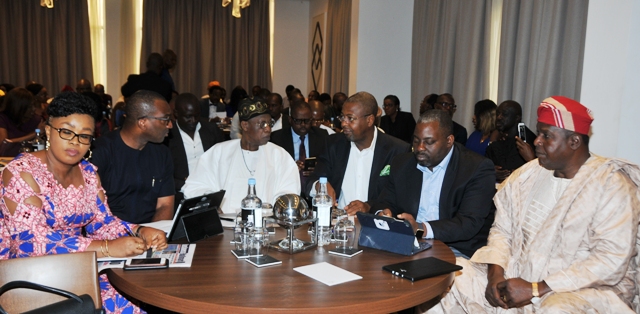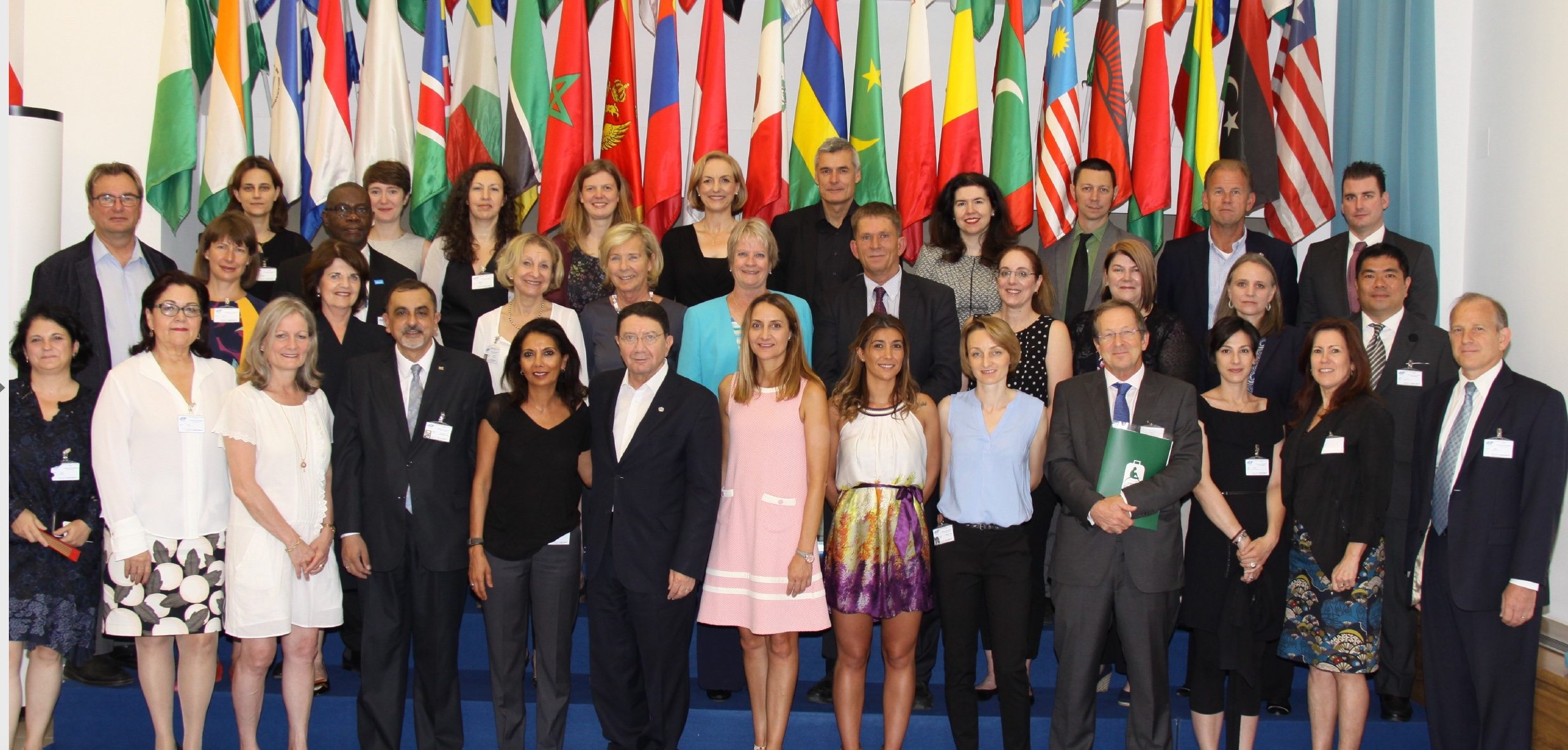

FG Partnership With UNWTO, CNN Come Under Fire From Tourism Stakeholders
Stakeholders comprising some organised tourism private sector associations have reacted angrily to the recent announcement by minister of Information and Culture, Alhaji Lai Mohammed that the Federal Government will go into a tripartite partnership with the CNN and the United Nations World Tourism Organisation [UNWTO] to boost the Creative Industry in Nigeria, using the film industry as a pivot.
First to react was Ikechi Uko, Chief Executive Officer, Akwaaba Travel Market, West Africa biggest annual travel and tourism exhibition, who said “I am surprised that the ministry can be having a discussion with the UNWTO without the organised tourism private sector inputs; considering the private sector experience in dealing with the UN agency, especially on the Tourism Master Plan that has never worked”.
Also speaking from his base in Kaduna, Malan Kabir, President, Association of Tourism Practitioners of Nigeria [ATPN], said that the government does not properly understand what tourism is all about and much more how to make it work.
“From the ways and manner the tourism private sector has been treated in the past, suggests to me that past leaderships of the organised tourism private sector failed to explain to the government on how this industry can work, or perhaps were only interacting with the public sector for their personal benefits.
“In fact there is no continuity, because the minster would have learnt from trends,” he noted.
Kabir concluded by saying that, every minister or director general would always want to start his or her stuff and at the end, nothing is achieved.
On his part, Vincent Ugbor, President, Hotel and Personal Services Employers Association of Nigeria [HOPESEA], said it’s a big shame for the organised tourism private sector not to be carried along, Ugbor therefore, suggested that a protest letter should be sent to the minister and possibly to the Acting President, Professor Yemi Osinbajo.
Lanre Owoseyin, President, Nigeria Hotel Association [NHA] taking a swipe on the past leaders of the Federation of Tourism Associations of Nigeria [FTAN], umbrella body of the private sector, blamed them for the disrespectfulness from government and its agencies.
Owoseyin noted that apart from this current issue, the ministry had in the past too, rubbished the sector for bringing on board just one technocrat on the technical committee of the abandoned Tourism Master Plan Committee, a critical policy that if well-articulated could lay a good foundation for the sector.
“Once again, the minister has been ill advised by choosing Creative Industry and Nollywood shenanigans that his predecessor touted with and never worked”, he said.
Owoseyin lamented that, what would Nigeria be selling or promoting through CNN, is it the pot holes on our roads, permanent darkness across the country or the undeveloped attractions; like Obudu and Tinapa that have all been abandoned, he asked.
Nkereuwem Onung, President, National Association of Tour Operators [NATOP], speaking on behalf of his association said the Ministry and Minister are of the thinking that when they mention names like Cable Network News [CNN] and United Nations World Tourism Organisation [UNWTO], the tourism private sector will be carried away.
He stated further that it is impossible to achieve result in any sector of the economy, much more a service industry like tourism without the involvement of the private sector operators.
“Without the tourism practitioners, the efforts will come to nothing” Onung concluded.
Bankole, Bernard, President, National Association of Nigeria Travel Agencies [NANTA], said he was not aware and that it would be wrong if that is the case.
Bernard said if the country is to embark on self-promotion internationally; using the Creative Industry, Culture and Nollywood as the ministry is set to do, such can still be done with inputs from the tourism private sector.
On his part, Rabo Saleh, President, Federation of Tourism Associations of Nigeria [FTAN], umbrella body for tourism private sector in Nigeria said that government cannot drive tourism without the private sector.
According to him, the private sector is the main driver of the industry, whilst government takes care of policies and provide enabling environment for tourism to flourish.
He however said that it’s not too late to bring the private sector into the discussion now to avoid mistakes of the past.
The minister had announced the partnership in Lagos on Monday July 10, at the Creative Industry Roundtable, saying that the film industry will be used ”as a lens through which the country would project various aspects of the Nigerian Culture, Tourism and similar areas”.
”We are kick-starting the project with a 13-episode production showcasing the various stages in a movie production. These include the choice of location, which will allow us to showcase the various beautiful sceneries available in Nigeria; the choice of wardrobe that will show the rich options in the country’s fashion industry; the choice of sound track that will highlight our rich music genres; the casting that will showcase our abundant talents and the technical part that will provide the platform to show that there is no camera and other gadgets that we don’t have here.
”As part of the project, we will also run a programme on CNN showcasing the 20 Nigerians to watch in the Industry. The Nigerians to be showcased will be selected by the industry players themselves to ensure authenticity,” the Minister said.
The minister also said that the tripartite partnership, as well as the MoUs with the Tony Elumelu Foundation, the Bank of Industry [BoI] and the British Council, were part of the efforts by the Federal Government to transform the Creative Industry to a Creative Economy.
According to him, “Government has no doubt that the plan to transform the Creative Industry to a Creative Economy must be driven by the private sector”.
Mohammed said deliberations from the Roundtable would feed into a larger event, the Creative Industry Financing Conference, slated for July17-18, at the Eko Hotel in Lagos and would be declared opened by Acting President Osinbajo.

Leaders unite to stop global sexual exploitation of children through travel and tourism
A combination of weak child protection systems, cheap international travel, and growing access to the internet is thwarting efforts to counter the sexual exploitation of children in the travel and tourism industries, a conference on the issue in Madrid this week concluded.
Hosted by the United Nations World Tourism Organization (UNWTO), the meeting of international experts and officials was supported by the government of The Netherlands, UNICEF, the Global Partnership to End Violence against Children, ECPAT International and the High Level Task Force for the Global Study on Sexual Exploitation of Children in Travel and Tourism. Najat Maalla M’jid is the Chair of this Taskforce, which guided the development of the Global Study, and she set the scene for the meeting by stridently declaring, “Sexual exploitation in travel and tourism has a child’s face. No country is untouched by this phenomenon and no child is immune. In this International Year of Sustainable Tourism for Development, let us place children’s right to protection from violence and exploitation at the heart of our actions,”
“We cannot build the responsible and sustainable tourism sector that we seek without protecting the most vulnerable in our societies. To do so we need effective tools and a global commitment” said UNWTO Secretary-General, Taleb Rifai.
Delegates heard that the rise of the Internet and informal operators as well as greater access to cheap international travel have expanded demand and heightened the risk of children beng sexually exploited. At the same time, grinding poverty and lack of education – combined with the continued neglect of child protection systems – have fuelled the supply of children.
In addition, a chronic lack of robust data is allowing offenders to commit their crimes in the shadows and with impunity, while the capacity to respond internationally and nationally is being outpaced.
The UNWTO is expected to ask its General Assembly to approve a new international convention on sustainable tourism in September, with the inclusion of provisions for the protection of children.
The Special Rapporteur on the sale of children and sexual exploitation of children, Maud de Boer Buquicchio, called for, “Child protection to be placed at the core of tourism development strategies.”
UNICEF – a global leader in child protection – emphasised the need for coordinated action. “All of us — from families and governments…to hotel workers, taxi drivers and airline staff…to tour operators and telecommunications companies…to police forces…to UN agencies and NGOs — we all have a responsibility to do all we can to end this monstrous violation of children’s rights…children’s safety…and children’s futures,” said UNICEF Executive Director, Anthony Lake. “It’s everybody’s business to end the business of children being exploited and abused.”
Interpol is releasing improved tools to significantly reduce the possibilities for known sex offenders travelling unnoticed internationally.
Peter van Dalen, from Interpol’s Organized & Emerging Crime Directorate, based in Lyon said, “Anonymity protects traveling sex offenders, and INTERPOL is working with countries to deprive known sex offenders’ of their anonymity, through mechanisms such as an international warning system sharing information across borders about convicted sex offenders, as well as an international vetting system for job applicants applying to working with children.”
The private sector has been closely involved, motivated by the need to combat practices that can seriously affect their reputation and their revenue. ECPAT International is calling for travel and tourism operators to join the “The Code,” a travel industry initiative to stop sexual exploitation of children. Some of the largest players in travel are members.
Head of CSR for RIU hotels – which is a member of The Code – Catalina Alemany-Sorrell championed the commitment of the family owned international hotel chain, “Large companies in the tourism and travel industry have a greater responsibility to the communities where we operate, precisely because of our capacity for influence and transformation. For this reason, we need our commitments to send signals to society that this problem will not be tolerated and that above all, we will fight for a world where children are free from abuse.“
The challenge now is to expand coordinated action to implement the recommendations of last year’s study which called for law enforcement, the private sector and civil society organizations to work together.
The Special Representative of the UN Secretary-General, Marta Santos Pais, encouraged strong linkages with global processes, saying: “The 2030 Agenda for Sustainable Development presents a unique opportunity to reverse this pattern and make all forms of violence against children part of our distant past.
